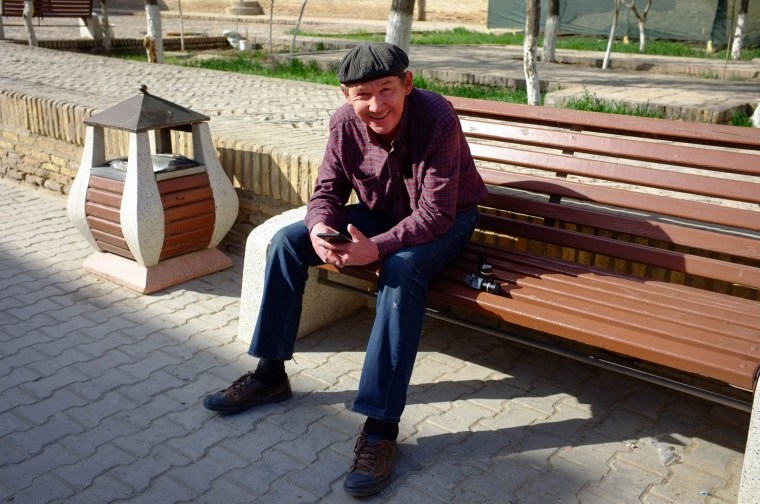Stockholm, April 22, 2021 – Uzbek authorities should drop all charges against journalist Sid Yanyshev and allow him to work freely, the Committee to Protect Journalists said today.
Yesterday afternoon, police in Tashkent, the capital, arrested Yanyshev, who works as a freelance contributor to the independent news website Fergana, according to a report by Fergana and the journalist, who spoke to CPJ in a video interview.
Yanyshev told CPJ that he immediately demanded the presence of lawyer, but said that police denied that request and attempted to pressure him into signing a form giving up his right to representation, which he refused to sign.
After about three hours in police custody, officers brought Yanyshev to the Yakkasaroy District Court, where he was charged with distributing “false information” over a Facebook post in which he described corruption allegations against a local construction company, according to those sources.
He was released after the court hearing, and is scheduled to appear in court again tomorrow, Yanyshev said. If convicted of distributing false information, he could face a fine of up to $2,330 under the Uzbek administrative code.
“Authorities in Uzbekistan should drop all charges against Sid Yanyshev, ensure that his right to work as a journalist is not infringed, and allow him to continue his reporting undisturbed,” said Gulnoza Said, CPJ’s Europe and Central Asia program coordinator, in New York. “If the Uzbek government wants its stated commitment to political reform to be taken seriously, then authorities must ensure they do not punish critical journalists for doing their jobs.”
On February 15, Yanyshev published an article on Fergana’s website about alleged corruption and mismanagement in a construction project in Tashkent.
On April 18, he wrote about that project again on SOS Tashkent, a Facebook group that he runs, which has about 1,300 members and features local political news and commentary. In his post about the construction project, he wrote that the project posed a risk to a nearby school, and alleged that the director of the school had taken a bribe to allow the work to go ahead.
Yanyshev told CPJ that even though he had spoken with several individuals to support the bribery allegation, he realized that it could expose him to legal liability and removed it in the morning of April 19.
By that time, however, the school director had already taken a screen shot of the post and contacted the director of the Tako Sales construction company, and they both filed formal complaints, he said.
Police arrested Yanyshev yesterday while he attempted to report on a demonstration against the construction project, he said.
Yanyshev told CPJ that, while he was charged specifically for the Facebook post, he believes the case is retaliation for his broader coverage of the construction project. Yanyshev said that he saw a thick police file relating to his case, and believed authorities had been investigating him before the April 18 Facebook post.
He also said that, during yesterday’s hearing, the school director and the construction director accused him of defamation and insult, but said he was not formally charged with those offenses.
Yanyshev said he feared that he may also be charged with those crimes, which are punishable by up to three years of “restricted freedom,” a penalty that, while its specifics are set by the court, can involve a prohibition on leaving one’s town of residence and a ban on public activities such as journalism, according to the country’s criminal code.
Yanyshev said he was not able to hire a lawyer throughout his time in police custody or at the court hearing, but added that the judge said that he can be represented at tomorrow’s hearing.
CPJ emailed the Interior Ministry of Uzbekistan and Tako Sales for comment, but did not receive any replies. CPJ could not find contact information for the school director.
[Editors’ note: This article has been changed in its fourteenth paragraph to correct a reference to the Uzbek criminal code.]
